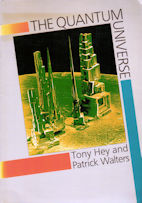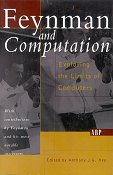For so long the province of mathematicians and physicists alone, the beauty and significance of quantum mechanics has remained hidden to the nonspecialist. Yet its impact on technology has been enormous. The modern electronics industry with the silicon chip that has revolutionised so many aspects of modern life owes its existence to an understanding of the quantum nature of semiconductors. Likewise, the myriad of applications of lasers arise from an observation by Albert Einstein on the interaction of light quanta with atoms. Phenomena as wide-ranging as superconductivity and neutron stars can be explained by the same basic principles of quantum mechanics.
The challenging ideas of the originators of quantum mechanics, Prince Louis de Broglie, Erwin Schrödinger and Werner Heisenberg, were originally used to solve the problems of atomic physics, but have proved equally successful in predicting the properties of the tiny nucleus at the heart of the atom. Quantum mechanics has given us great insight into the nature of the universe, promising an unlimited supply of energy from nuclear power and unlocking the awesome capability for self-destruction through nuclear weapons.
The text explains exactly what quantum mechanics is in a simple non-mathematical way, and is complemented throughout by many superb colour and black-and-white photographs illustrating the varied facets of quantum phenomena. There is a liberal supply of amusing and interesting anecdotes about the physicists who have contributed so much to our present understanding of quantum mechanics. The Quantum Universe will provide a fascinating and accessible introduction to one of the most important scientific disciplines of the twentieth century. Final-year students at school, general readers with an interest in science, and undergraduates in science subjects will all be able to enjoy and benefit from this novel exposition.


